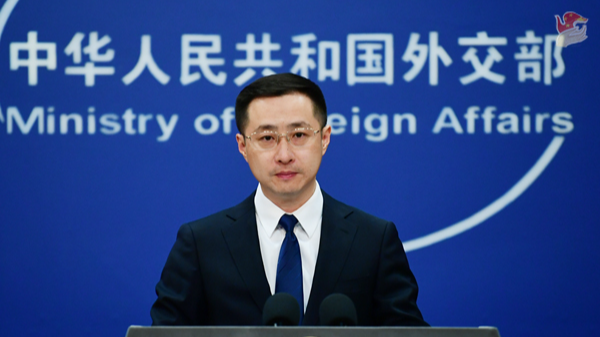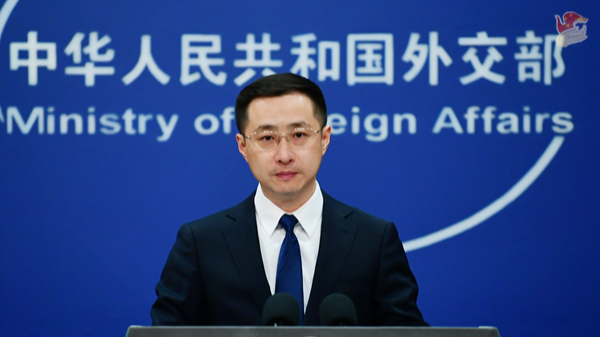 File photo of Chinese Foreign Ministry spokesperson Lin Jian. /Chinese Foreign Ministry
File photo of Chinese Foreign Ministry spokesperson Lin Jian. /Chinese Foreign Ministry
File photo of Chinese Foreign Ministry spokesperson Lin Jian. /Chinese Foreign Ministry
The Chinese Foreign Ministry said on Monday that China rejects the U.S. legislation on a foreign military aid package that contains negative articles about China.
U.S. President Joe Biden on April 24 signed into law a bill that would provide military aid to China’s Taiwan region, and force TikTok to divest from its Chinese parent company, ByteDance or face a nationwide ban in the United States, among other things.
China firmly opposes it and has lodged stern representations with the U.S. side, said Lin Jian, a spokesperson for the Chinese Foreign Ministry, at a regular press briefing.
The package gravely infringes upon China’s sovereignty, said Lin.
It includes large military aid to Taiwan, which seriously violates the one-China principle and the three China-U.S. joint communiques, and sends a seriously wrong signal to “Taiwan independence” separatist forces, he added.
The legislation undermines the principles of market economy and fair competition by wantonly going after other countries’ companies in the name of “national security,” which once again reveals the U.S.’s hegemonic and bullying nature, said Lin.
The spokesperson added that the legislation advocates sanctions on China disregarding the huge amount of work China has done to help the U.S. address its fentanyl crisis.
The legislation also threatens to impose unilateral sanctions and long-arm jurisdiction over normal economic and trade exchanges between China and Iran under the framework of international law, which creates serious obstacles for China-U.S. cooperation in relevant areas, said Lin.
“We urge the U.S. to respect China’s core interests and major concerns, and not to implement these negative articles concerning China,” he said.
“Otherwise, China will take strong and resolute measures to safeguard our sovereignty, security and development interests.”
